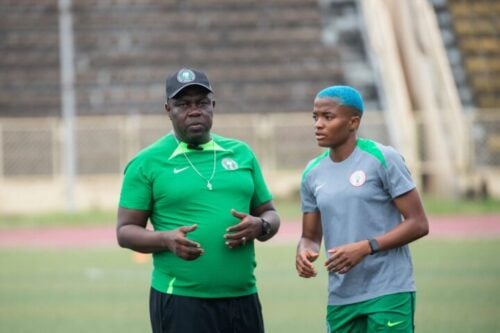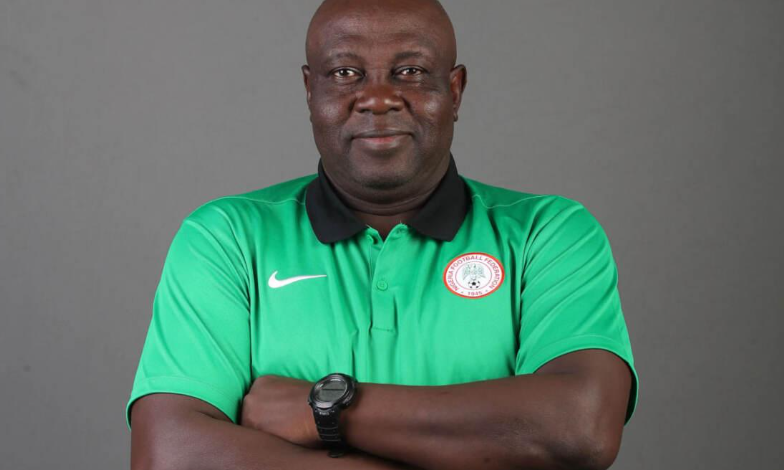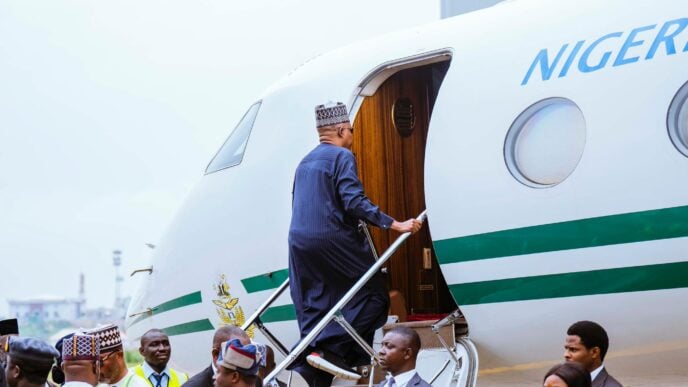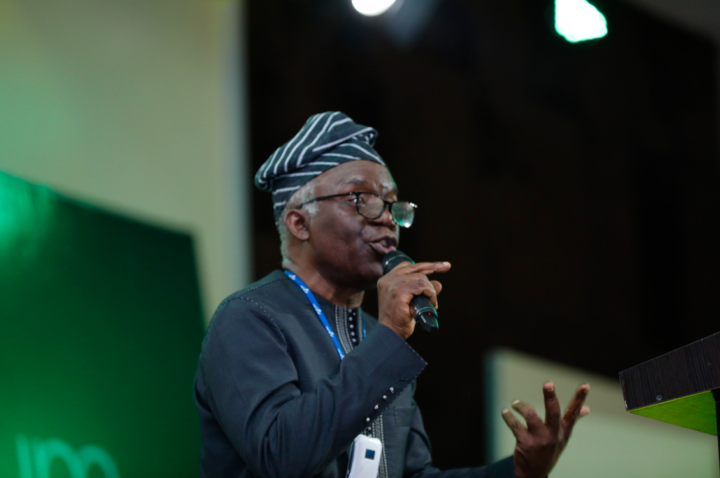Justine Madugu / photo credit: CAF
On Saturday night, the Super Falcons of Nigeria staged a dramatic comeback to win the 2024 Women’s Africa Cup of Nations (WAFCON), overturning a two-goal deficit against host nation Morocco to claim a thrilling 3-2 victory.
Few believed in a turnaround after a dismal first half, so much so that one Nigerian news outlet prematurely declared Morocco the champions. But Justine Madugu, the Falcons’ interim coach, had other plans. His decisive double substitution in the 59th minute changed the game’s trajectory, culminating in Jennifer Echegini’s 88th-minute winner: a moment that crowned Nigeria continental champions once again.
Madugu, named ‘coach of the tournament’, didn’t just mastermind a miraculous victory in Morocco; he solidified his reputation as a tactician who understands the Super Falcons inside out. His triumph was no accident; it was the culmination of 12 years of dedication to Nigeria’s women’s football, weathering its highs and lows from the shadows.
FROM CREW MEMBER TO INTERIM COACH AND NOW, A WINNER
Advertisement
When American coach Randy Waldrum departed in September 2024, the Nigeria Football Federation (NFF) turned to Madugu as a stopgap solution, a temporary fix while they scouted for yet another foreign manager.
But Madugu, 61, had different ideas.

Since taking charge, the Adamawa-born gaffer has lost just once, a narrow 2-1 defeat to France, while racking up 11 wins and two draws. His deep familiarity with the team, having served as assistant coach in the last four WAFCON editions, proved invaluable. He was part of the 2014 and 2018 title-winning campaigns and witnessed the Falcons’ 2022 humiliation, where they finished fourth.
Advertisement
This time, in Morocco, he exacted revenge. His Falcons dethroned defending champions South Africa, halted Zambia’s meteoric rise, and finally avenged their 2022 group-stage loss to Morocco by beating them in the final.
THE SCHOLAR WHO TRANSFORMED THE FALCONS’ MENTALITY
Madugu’s tactical acumen was on full display throughout the tournament. When he made three halftime substitutions against Tunisia, despite leading 3-0, many questioned his judgment. But it was a statement: This was a coach unafraid of bold decisions.
His approach is rooted in education and experience. A holder of two master’s degrees (Sports Psychology and Sports Management) and CAF’s elite ‘A’ License, Madugu blends mental conditioning with tactical discipline.
Advertisement
In Morocco, his calm demeanor and press conference poise mirrored his on-field strategies. He benched stars like Asisat Oshoala for tactical flexibility, deployed dead-ball mastery to dismantle Zambia, and pushed Esther Okoronkwo forward in the final, a move that yielded a goal and two assists. His team’s resilience shone through with late winners against Botswana (89’), South Africa (88’), and Morocco (88’), proving they never knew when to quit.
FROM OBSCURITY TO CONTINENTAL GLORY
Madugu’s journey wasn’t handed to him. He started in 1987 as a part-time coach with amateur side Fashanu Babes, later navigating Nigeria’s football backwaters with teams like Adamawa United and FC Taraba. His breakthrough came with Nigeria’s youth teams — Falconets (U-20) and Flamingos (U-17) — before joining the senior team in 2012.
Now, after 37 years in the trenches, he has earned continental recognition. The question is: Will the NFF reward him with a permanent job? Or will they revert to their old habit — hunting for a foreign “big name” while ignoring the man who just delivered a trophy?
Advertisement










